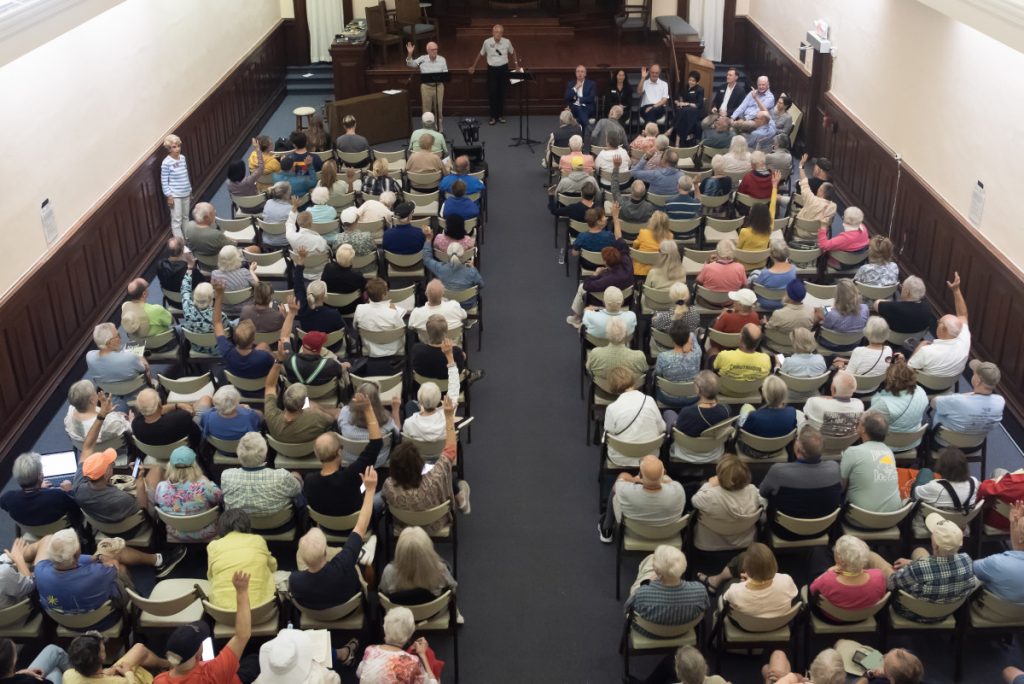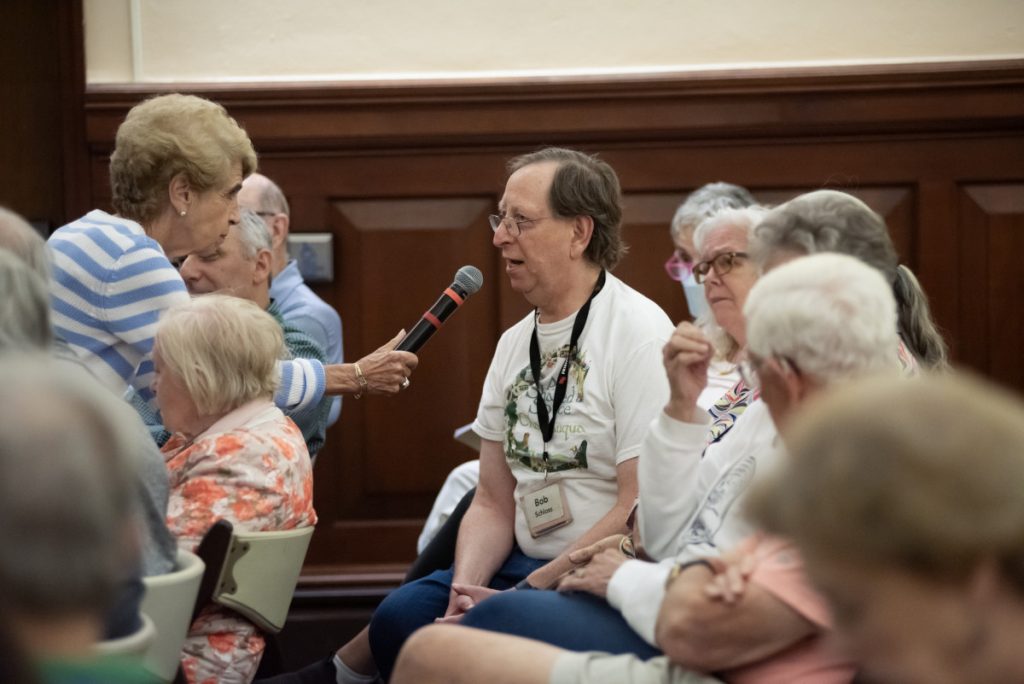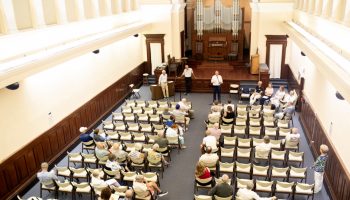
Cody Englander
Staff Writer
During the Week Nine Forum Dialogues session Monday in the Hall of Christ, Interim Chief Executive Kyle Keogh, members of the board’s Financial Sustainability Working Group, and other executives at the Institution fielded questions and propositions about forecasted budget cuts scheduled to hit in the days and weeks after the season end. Monday’s was the third town hall- style conversation following Keogh’s announcements of the budget cuts on July 28, and the first since an update he gave earlier Monday.
Keogh recognized what has improved over the past year, focusing on ticketing and food services. The main issue continues to be lower-than-expected attendance levels, mainly from one-week ticket holders — which isn’t helped by the lack of housing inside the Institution’s gates.
“We think we’ve lost between 15 and 25% of our rental capacity,” Keogh said.
He also hopes that philanthropy and endowments may be the future of certain aspects of the grounds going forward.
The Chautauquan Daily doesn’t appear to be going away in print, though Keogh noted a price hike. He also noted that he’s learned it’s not just a job, but an educational program for young journalists, especially in the age of artificial intelligence.
Going forward, Keogh wants to continue to appeal to the younger crowd and diversify the age groups within the grounds.
“We’ve done very well this year with the under-20 crowd,” Keogh said. “Club has had one of its best years. How do we sustain that? How do we continue to evolve those areas?”
The first idea from community members was the suggestion to add campgrounds outside the Institution as a solution for housing. Keogh believes it’s a bit of a risk. Most people want to stay inside the grounds, which this proposed idea doesn’t offer.
A potential solution to the Chautauqua housing crisis is adding condos. The board has consulted with real estate developers about housing on the grounds.
Michelle Shader, a community member, suggested short-term economical apartment units.
Another community member, Jimmy Carroll suggested “mini” houses, described as “100-square feet on a slab with a community kitchen.”
Those wouldn’t have the proper density needed to solve the issue at large, Keogh said, though they may be good options outside the grounds. He proposed more denominational houses as a way to supplement accommodations.
He noted about 25% of single-week attendees stay at denominational houses. While it doesn’t solve the entire issue, it does offer some housing and increases diversity on the grounds, another point of emphasis for Keogh. The main issue is the density on the grounds and where to develop.
The conversation then transitioned to programming, where Keogh stated there are no planned cuts to any “specific large area.” He looks to cut around some of the edges, and pull back funding in certain areas.
Senior Vice President and Chief Program Officer Deborah Sunya Moore discussed the cost of larger evening acts.
“A lot of these big artists might have the largest fees, anywhere from $100,000 to $250,000 for a night,” she said. “Those are huge fees for Chautauqua.”
However, Chautauqua makes that money back from parking, tickets, food and drinks.

“You might be surprised to know that where you make the least money or lose money, is on nights where we have a low- or middle-fee artist that might cost $10,000, $20,000 but it might have zero single ticket sales,” Moore said, clarifying a point from an earlier Forum Dialogues about booking emerging artists.
A community member who did not state his name brought up the idea of using the grounds for more conferences during the shoulder seasons, but Moore referenced the increasing lack of accommodations to host more conferences — especially during the winter months.
Keogh stressed philanthropy as an answer to some of the cuts.
“If we don’t rely on philanthropy, we would need to increase our prices pretty substantially,” he said.
Some ideas were suggested to innovate online. Packaging lectures together online was a proposed idea from an attendee who did not state her name. Moore stated that this could result in different structural contracts with speakers, though it may be a future plan.
Another suggested idea was the reintroduction of the Food Festival — which has been announced as returning for two weeks in 2026 — from a community member who did not state her name.
Keogh closed the last of the season’s Forum Dialogues by thanking those present.
“Thank you for taking the time and for your love for Chautauqua,” he said. “This is a special place. It’s a special place to me, to my family, to all of you. We have a great past, a good present, and probably an even more impressive future, if we all do this together.”



